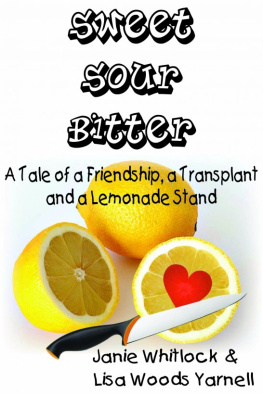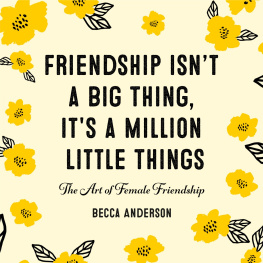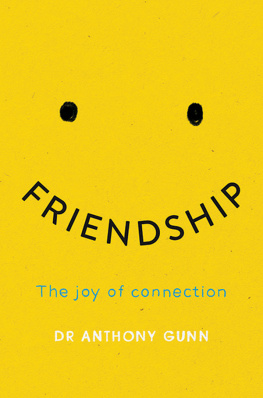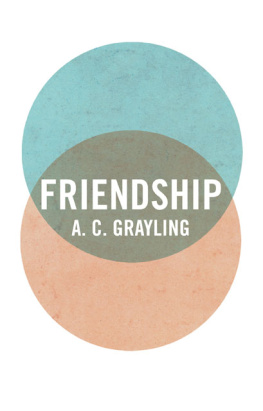Sweet Sour Bitter
by Janie Whitlock and Lisa Woods Yarnell
Smashwords Edition
Copyright 2014
Janie Whitlock and Lisa Woods Yarnell
This ebook is licensed for your personal enjoymentonly. This ebook may not be re-sold or given away to other people.If you would like to share this book with another person, pleasepurchase an additional copy for each recipient. If youre readingthis book and did not purchase it, or it was not purchased for youruse only, then please return to your favorite ebook retailer andpurchase your own copy. Thank you for respecting the hard work ofthese authors.
Dedication (Janie)
For Frau Mona,
The sweet in my bitter
Table of Contents
First Thoughts
Novels and stories are renderings of life; theycannot only keep us company, but admonish us, point us in newdirections, or give us the courage to stay a given course. They canoffer us kinsmen, kinswomen, comrades, advisors offer us othereyes through which we might see.
--Robert Coles, The Call ofStories: Teaching and the Moral Imagination
We read to know that we are not alone.
--from the film Shadowlands
Foreword (Lisa)
What is this story? I ask myself, ponderingstrategies to invite you to read it. Although we begin with thefriendship of two former film students, its not the rollickingadventure of two college friends who met, had all sorts of daringfun, and then soared to the top of their respective glamorouscareers in film. And, much as wed like it to be, its not aninspirational story of triumph against a debilitating physicalillness -- we, the co-authors dont even know how that partends.
The story is an offering -- a rendering, asRobert Coles calls it. Its like the sketch of an arguing couple inthe rain on a city street that catches your eye in an art shop andprovides a moment to ponder one of the particular and insidiouscurves in the universe that appear to shape a life, or two lives,or a community of lives.
Some of what we are is shaped by vast anddestructive events--- like a wild storm that leaves devastation ina forest grove. The storm uproots trees; it squashes delicatethings, leaving them torn, faded, and gone. Or a life can be formedmore subtly in a gentler cycle of sunshine, rain, and wind, thatover many years cause a gray branch to grow out, then up, then tocurl around and turn the other way. You find yourself in the foresttouching that branch, wondering at what must have happened,thinking how clever it was to make that shape.
Chronic illness and a looming livertransplant helped shape our lives and our friendship. Here is thetelling of that. To reach for another metaphor, we hope that maybeyou can use the story as a banister of sorts--something firm tohold onto while climbing your own steep and unpredictable set ofstairs.
Foreword (Janie)
Lisa has been a part of my life for a longtime. Ive known her longer than the time when I haven't. When Ibecame separated she said, Move in. Stay as long as youd like, Iknew she meant it. When she offered to be my caregiver before andafter a transplant, I knew she meant it. Lisa, in fact, knew moreabout my various health issues than I did. There were times Ididnt want to be defined by so many medical terms. For years,because I could, I turned my face away from the inevitable.
I have always asked doctors what I shouldexpect next. Forewarned is forearmed. I was never forewarned.Doctors would be surprised at what happened again and again. AndLisa would be back at her computer piecing information together asthe doctors pieced together my parts. Lisa traveled distances inthe snow or rain to fetch me from the ICU's and ER's. She also sentme internet links...and links...and links.
I was a bit nonplussed by how the transplantcenter took the news when I named Lisa as my primary caregiver forthe ultimate procedure. Naming such a person is a requirement forbeing in most transplant programs. Lisa and I arent married, notlife partners in the traditional, or the non-traditional, sense.The clinic that accepted me for their program (hereinafter to becalled The Big Clinic) seemed to feel that best friends andsisters-in law might not be as stable a relationship as the usualspouses would be. It's absurd, of course. How many 32-year-longmarriages do you know of? That's three times longer than my ownmarriage, longer than any other relationship outside my immediatefamily. My clinic of choice scored me low in the area of support.Puh-leez! Or rather puh-lisa! It is to laugh. I trust her with myhealth out of love, but also her eager curiosity about medicalissues.
I'm not writing a book about our friendshipto convince my transplant clinic otherwise, and not to belittle mystrong friendships of a lesser duration, nor as a how-to manual onkeeping a friend. If anything, it is a how-to on how to frightenthe stew out of a friend. The minor signs of hepatic encephalopathyalone are enough to curl the toes of people with lessfortitude.
Our story is one of surprise, a friendshipthat had no particular reason for enduring other than it did. Twovastly different people who took strength in common ground and whoglide through middle-age hoping it may glide a little longer.
Meeting (Lisa)
All the meetings we've had in the last fewmonths--meetings with a transplant support group, with doctors,with nurses, with medical expense fundraising supporters--had theirbeginnings in a chance meeting in a college dormitory decadesago.
People always say they didnt like me atfirst, I can hear Janie saying now. Maybe I didnt. I was in gradschool at the University of North Carolina at Greensboro for filmstudies, year one. She was a freshman. Protective of my new footingas the self-appointed bohemian duchess of the grad students' dorm,I was irritated when my new friend Ian kept mentioning her. He'dsay, Well, Janie says or my friend Janie likes or Janie justread or youll like meeting Janie. No one enjoys that sort ofintroduction to someone, right? Ian was an intellect, an intenseguy, a thoughtful guy, a pondering guy, a guy with a snorting laughwho appreciated the personalities around him. A writer--and onealways thinks, well, I wouldnt mind being the subject of a poem,eh? Me, I thought, not Janie.
Eventually Ian invited his Janie to acasual get-together in Spencer Residence Hall, where a group of theresident graduate students had formed a student family. We'd hangout talking or watching television under a big portrait of thehall's namesake, the severe-faced Mrs. Spencer. And so there I metJanie--tall and lovely, with long curly brown hair, intense browneyes, a sharp wit, and a lot of curiosity. As a curious freshmanestablishing a social life, she began appearing often, at amusic/dance party in the dorm, a meal of international food by theforeign students, at the bedecking of Mrs. Spencers portrait withballoons and ribbons to inaugurate the celebration of anything. Shewas witty and observant and in the end I liked her, but we did notbecome fast friends right away.
We bonded over a misstep--hers. I was agraduate assistant with the college radio station, paid to designand monitor a program for undergraduate students to earn collegecredit for their work at the station, WUAG. I cant rememberworking very hard at the job, and if my faculty supervisor showedup out of the past now, Id have to hide my head under a stack ofpillows to express my embarrassment for what I did NOT do in thatcapacity. The most lasting thing I did was to offer Janie a placeto work out community service after she was caught by herresident hall adviser smoking the wrong substance in the wrongplace. To expiate her sin, she took over a late-night radio show,spinning the latest alternative music. This put us in two socialgroups together, the graduate dorm group and the radio stationstudents. We started going out to all the local fun spots -- therewas a punkish band we loved called "Oh, Boy". We hung out at NewYork Pizza, just drinking, flirting, and laughing I guess.











